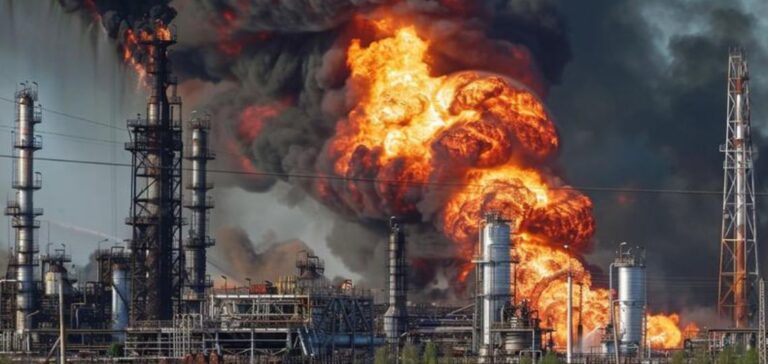The Tuapse refinery on the Black Sea was hit by a Ukrainian drone strike on July 22, causing a fire that was quickly brought under control by the local authorities.
The fire covered around 50 square meters and was extinguished at around 8 a.m.
This attack marks the first significant strike on a Russian refinery in over a month.
Previous attacks on the Tuapse refinery include a strike on January 25 which damaged the vacuum distillation unit, and another on May 17.
Despite these incidents, Tuapse continues to export significant volumes of fuel oil, reaching 111,200 barrels per day (b/d) the week of July 14, the highest level since October 2023.
Energy infrastructure is a target for both sides, as demonstrated by the Ukrainian bombardment of a Russian fuel depot.
In addition, Ukrainian bombing raids on refineries were stepped up during the Russian presidential elections.
Escalating tensions
The increase in Ukrainian drone strikes on Russian energy infrastructure reflects an escalation of hostilities in the conflict.
Recent attacks on oil depots in the Oryol and Rostov regions are aimed at weakening Russia’s strategic fuel reserves.
The most recent attack on a refining facility was on June 21, targeting the Ilsky refinery administration building.
Russia is considering re-imposing an embargo on gasoline exports to maintain domestic supplies.
The Federal Antimonopoly Committee is recommending an export ban from August 1 to August 31, with a possible extension until October.
These measures are a response to the impact of drone strikes and rising fuel prices.
Market impact
Analysts predict that the increase in Ukrainian drone attacks could tighten controls on fuel exports, leading to higher prices on the European low-sulfur diesel (LSGO) market.
For the time being, Russia is maintaining diesel exports, ensuring that its production is almost twice as high as domestic demand, although flows will be temporarily banned in September 2023.
This series of attacks and Russia’s regulatory responses are creating instability in the global energy market.
Industry players are closely monitoring these developments to anticipate impacts on supply and prices.
The drone strikes on the Tuapse refinery illustrate the fragility of Russian energy infrastructures in the face of persistent threats.
Russia’s response, particularly in terms of fuel export policies, remains crucial to the stability of global energy markets.
As the conflict continues, energy professionals must remain vigilant and prepare coping strategies.






















